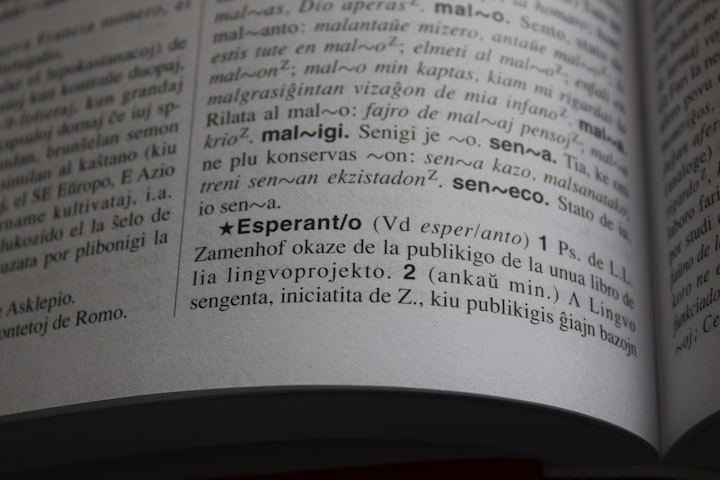New Scottish Budget Just Dropped
What's in it and what precedent does it set for Future worldwide budget's coming out of the Pandemic?

Scotland is a pretty Lowkey country, mainly because it's overshadowed by whatever happens in Westminster in England (and the wider UK). However, Scotland, I believe shouldn't be as Lowkey as it has been. Scotland is setting an example to the rest of the world of how you can be a Green Leader on the World stage despite not being the largest country on the block. The Scottish Budget for 2022-2023 gives insight into what to expect for other government budgets following the pandemic. Somethings included are surprising, but the things not included set an unusual precedent.
So, What's in the Budget, What's not in the budget and what does it mean for the future of Scotland's Economy, and rather controversially what does it mean for the Scottish Norms and Standards under an SNP-Green Government.
The key things included in the Budget are;
Doubling the Scottish Child Payment to £20 per week per child

The Scottish Child Payment is branded as the Scottish Governments "Game changing" Benefit which provides extra support to families on low incomes. There was a lot of talk in the press and inside the Parties that the Scottish National Party (SNP) were going to look to doubling the SCP but with the last 18 months of the Pandemic, there were a lot of Questions about what was going to be cut in order to slide it into the budget and in order to give it the Utilitarian Edge that it needs to be at all relevant.
Much of what seems to have been cut, or cut in comparison (not keeping with rising trends of budget increases) are smaller than projected increases in Rural funds. Which sounds bad until you realise that the Government has for the past few years been bouncing Rural funding up and up pretty substantially. To see a plateau in this side of the budget doesn't seem to be surprising nor is it controversial, the Government's made it clear that this budget was and is a Budget of "choices". What they mean by this is, the Government had a choice, they either keep overspending past their capacity during a pandemic, or they lay out some key priorities. Which Welfare, Healthcare, Education, Inequality and Covid Recovery have been set as their priority.
£18 Billion for the NHS

£18 Billion may not seem like much depending on where you are reading this from. But to provide some context, Scotland has a Population of around 5.4 Million, a GDP of around $205 Billion. Scotland in comparison to other UK countries outperforms in regards to Healthcare. In tandem with Wales, All prescriptions are free whilst in England each prescription is £9 (which can either be a really good deal, or a really shit one). Scotland has more hospital beds and generally better Emergency Room waiting times, with around 91% seen within 4 Hours.

The £18 Billion keeps in line with the Gradual increases in NHS Spending over the past couple of years. Up until 2018, Average increases in NHS spending were around £500 Million. In 2018, Jeane Freeman took over as Cabinet Secretary for Health and Sport and she started the trend of increasing it by £1 Billion every budgetary year. So seeing that we've had a catastrophic Pandemic, drops in the Economy, increases in Mental health issues. To see that they are keeping the trend of Gradual increases in NHS Spending is promising.
£1.2 Billion For Mental Health
Mental Health Treatment and diagnosis in the UK is notoriously piss poor and Scotland is not excluded from that. For years, the Mental Health Section of the NHS has been completely overlooked, as it has been in many countries. The £1.2 Billion is welcome as it is a significant boost to a side of the Budget that has been overlooked and at times completely ignored in the budget.
£200 Million to bring in a £10.50 Pay floor for all Health and Social care staff
At the moment, Average pay for Entry level health and social care jobs tends to sit around the £9.70 per hour mark. The Creation of the new £10.50 pay floor is above the Living wage (by around 30p) and will help the Scottish Government incentivise more people to work in Social care, especially as the Government is gearing up to create a Nationwide National Care Service, on a scale similar to that of the National Health Service.
Freezing Income taxes for the Next budgetary year
This keeps in line with the Scottish Governments stance over the past 1 or 2 Covid budgets. Income taxes in Scotland are as follows;

Scotland has a Progressive Marginal Income Tax, meaning that if you make for example, £100,000 per year salaried. Your income is taxed progressively more the higher up the ranks you go. So for this example, the first £12,570 you make will be tax free, the next lot between £12,570 and £14,732 will be at 19%, then the lot in between £14,732 and £25,688 will be at 20%, the next lot at 21% and lastly 41%.
Business rates relief for Small businesses
"Business Rates" are the tax Levied against business properties, it can also be called a Commercial Property Tax. Unlike most taxes, it's not characterised as a percentage, mainly because the law that brought Business Rates into law in Scotland were passed in 1845 with the passing of the "Poor Laws". The business rates come in three bands as follows;

The 100% tax reliefs applies to businesses in Retail, Aviation, Leisure and Hospitality as well as businesses whose property is covered under the basic rate.
Increased resource allocation and strengthening of fiscal powers for local governments and councils

In Scotland, things like local infrastructure, Schools, state run leisure centres, property planning, etc is funded and run through local Councils, of which there are 32. The new powers allow for greater fiscal responsibility and rolling out of more localised benefits, grants, loan schemes and social programmes therefore creating more autonomy.
£1.95 Billion for the Roll out of Adult Disability Payment

Adult Disability Payment is the new version of PIP (Personal Independence Payment) that will be devolved to the Scottish Government in Early next year. The rates of ADP will stay consistent with PIP however the process of getting ADP will be reformed SUBSTANIALLY. Under the DWP (the main body of the UK Welfare State) you have to go to a private "doctor" and they are notorious for lying and denying you any Disability. Some as callous enough to tell a Quadraplegic to their face that they aren't disabled in any way and that they should just "Go get an office job".
Under the new Scottish System that won't happen, it'll be a matter of going to your own doctor, the doctor you've had your entire life. Them writing a letter about your condition, recommending the level of Benefit for you based on their judgement and that being sent to Social Security Scotland for processing in which they will provide what the doctor ordered.
ADP much like PIP can be used to get a specially fitted car for you or for your carer/spouse to drive on your behalf.
£72 Million to expand Free School Meals
During the Pandemic, the Conservatives (Tories) were involved in a Scandal where there was a vote to extend free school meals for low income children and they voted against it. The Conservatives have a Majority in the United Kingdom Government (Westminster) so for England, Free school meals or anywhere that didn't have a council funded option had Free school meals ripped from them.
As one Scottish Government minister said "When they go low, we go high" and thus Scotland has stuck to their guns and not just kept Free School meals but is expanding it from Middle schools to Elementary schools as well.
Scottish Schools also run a breakfast club, where low income students (and frankly any students) can come into school 30-60 minutes early and get a free breakfast, they can choose from cereal, toast, a fry-up or some local options depending on the school.
£544 Million to Provide Free Early Years Education to 3 and 4 Year olds
Scotland is the only country in the UK to provide Free Tuition to all College and University students. High school education is also free and Free secondary Education goes back to around the 7th Century (yes, before democracy). The Provision of providing Free Early Years Education to 3 and 4 Year olds is expected to be extended to 1 year olds by 2023 once the Economy is back into full swing. Of which the Economy is expected to grow back to pre-pandemic levels by the end of 2023.
£831 Million towards affordable housing and Social Rent
In the UK and especially Scotland, State run housing is much more popular and common than it is in the United States. Around 73% of the Scottish Population live in Council built Properties or live in Council commissioned properties built through Housing Associations (basically landlords with very little Profit motive). The £831 Million will allow for the Governments plan for 110,000 new affordable homes to get kickstarted straight out of the pandemic. Basically creating a massive Keynesian work programme and thus boost to the Economy.
A £205 Million Cash Boost to the National Investment Bank
The National Investment Bank of Scotland is a State-Funded Investment Bank that provides Loans, seed capital and grants to Enterprises up and down Scotland. The National Investment Bank is separate from the Government but the Government does guide what kind of Investments the Bank can make and accept. The main Priorities for the Bank are Mid-market Housing projects, Green power and technology as well as Connectivity. The Government is committed to delivering £10 Billion to the bank over the next 10 years, A £205 Cash boost seems to be a pretty good compromise given economic situation.
£51 Million towards Rural islands and services

The Islands of Scotland, such as Harris, Lewis, Skye and Barra over the years have suffered a Exodus from the Islands to the mainland. Not too dissimilar to the issues facing Rural America. This exodus is impacting agriculture, horticulture, fishing and the Overall Economy of the Island communities. In an bolstered attempt to try and reverse this, the Scottish Government is planning a £5 million fund that provides £50,000 Bonds to anyone in Scotland who is young and willing to start a business in the Islands.
£2.5 Billion towards the Decarbonisation of Scotland's National Infrastructure
The £2.5 Billion is part of a Overall plan to Inject £6 Billion over the course of the Parliament to decarbonise the overall Economy, Heating Grid, Housing and Railways. This is in line with Scotlands move towards net zero carbon, Scotland is on track to be the First Country in the World to be running at 100% Renewable Energy, as of writing Renewable Energy makes up a total of 97% of Scotlands Electrical grid and Usage
£336 Million Towards Energy Efficiency
The £336 Million is going towards re-designing and installing better Energy efficiency and heat efficiency in Homes, Offices and Public Buildings like Hospitals. All in a move to conserve energy and heat as much as possible so that Scotland can get more bang for its buck when it comes to Energy production and usage.
£1.4 Billion towards De-carbonisation of the Railways

In Scotland, by early next year all of the train companies and networks all across the country will be Owned and run by the Government. The Private contracts that were given to Scotrail and Virgin have passed their use by date and time is coming to a close. The plan for the Scottish Government is remove every ounce of coal energy from the Electricity grid that the Trains run on as well as the Fares Fair programme the Government aims to cut the cost of Travel by train in Scotland in half, ensure workers rights for all those working on the trains and in the train stations and provide more timely service overall.
£150 Million towards more accessible walking paths

The Goal for the Scottish Government for both the SNP and Green Party Coalition is to create a "20 minute neighbourhood" the basic idea being that all that you need will be within a 20 minute walk of your home, so your job, your convenience stores, malls, Hospitals (where practical), doctors offices, etc will all be within walking distance. The extra £150 Million is dedicated towards extending public walking paths and making them accessible for Cyclists and wheelchair users. As a Wheelchair user, i've never had an issue on the walking paths, but improvement is always welcome.
£23.5 Million towards the Green jobs fund
The Green Jobs fund allows for businesses to take out grants that allow them to train, invest and hire more employees in Green Sectors like Power, Manufacturing and Tech spaces. The £23.5 Million is on par with what has been put towards the Green fund in past years but I expect that the Scottish Government in the next Budget will "make up for lost time" and double it.
£43 Million towards the Creation of a Circular Economy

A circular economy at the most basic level is an Economy that is re-structured so that at every stage of the lifecycle of a resource, product or service. As it approaches its use-value it can be efficiently recycled or even upcycled into something that can get more use value. The goal eventually for Scotland is to have upcycling plants at every port, airport, landfill that allows all plastic to be perpetually upcycled so that it never ends up in a landfill.
£53 Million to help restore Scotland's Natural Landscapes

One of Scotland's largest industries is Tourism, Tourism generates around £12 Billion of economic activity for the Scottish GDP and one of the main tourism destinations for Tourists are the rolling hills and mountains of the crags, glen coe, loch lomond, loch ness and the old man of storr. The £53 Million Cash boost is aimed to go towards further hiring of conservationist's, Park Rangers and Biologists to help us re-invigorate the Eco-systems and create a healthier landscape.
And Finally, £69.5 Million Towards Re-building Scotland's Forestry

As I alluded to before, Landscapes and the larger eco-system are major drivers for the Scottish Economy and after centuries of pillaging the land of natural resources like Coal, Iron, Aluminium, etc. The Forestry and Land of Scotland is not as up to scratch as it could be. This cash investment is to get the ball rolling post-covid to get Scotland's natural landscapes back into order and safe for all the Flora and Fauna that call Scotland home.
Closing Thoughts
Scotland's budget is an example of how a Post-Covid Budget can be managed, how it can be within budgetary capacity but still put forward some forward thinking ideas and still make change. If Governments manage themselves and hold themselves to account well, then the Governments around the world can absolutely create a world worth living in, can make massive investments in what matters most.
About the Creator
Quaker-nomics
My name is Abe, I'm a 3rd year Business Economics student mainly specialising in Alternative Business structures like Co-operatives and Accessibility. I mainly write about Business, Politics, Sociology and some personal stuff.
He/him






Comments
There are no comments for this story
Be the first to respond and start the conversation.